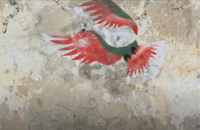Israel – Palestine: What are investors doing?
 The majority of professional investors have signed charters and principles for responsible investment, many of which are imbued with international law. Some pension funds, sovereign wealth funds, and asset managers have even developed specific policies regarding investments in conflict zones. So how do these institutions position themselves in relation to the Israeli-Palestinian conflict—and how do they act on these positions?
The majority of professional investors have signed charters and principles for responsible investment, many of which are imbued with international law. Some pension funds, sovereign wealth funds, and asset managers have even developed specific policies regarding investments in conflict zones. So how do these institutions position themselves in relation to the Israeli-Palestinian conflict—and how do they act on these positions?
A common first step is consulting published lists of companies alleged to be complicit in the establishment of illegal settlements in the Occupied Palestinian Territories. These lists are compiled by the United Nations and by non-governmental organisations (NGOs) such as the American Friends Service Committee, Who Profits, the Don’t Buy Into Occupation coalition, and Boycott, Divestment and Sanctions (BDS) movement. Companies span a wide range of business sectors: arms, technology, construction, telecoms, tourism, real estate, banking, commerce, renewable energy. They also include Israeli, foreign and multinational firms of all sizes.
Some investors then use these lists to divest or exclude securities from their investment portfolios. In recent years, several public sector pension funds in countries such as Norway, the Netherlands, the United Kingdom, and the United States have made this choice under pressure from members and stakeholders. In Geneva, Switzerland, for example, the Green Party and the public service trade union are calling on the cantonal pension fund to halt investments in Israeli companies and sovereign bonds. More…
Source: Covalence / illuminem

